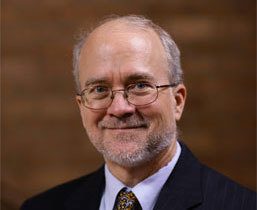
A key participant in the Colombian peace talks is guardedly optimistic that even though the peace agreement was not approved by voters, peace will still be achieved.
Douglass Cassel, professor of law at Notre Dame Law School and advisor to the Center for Civil and Human Rights, played a crucial role in the recent Colombian peace talks, and recently spoke about the process during a presentation to a standing-room-only group at NDLS.
Colombian voters rejected a peace deal with the Revolutionary Armed Forces of Colombia (FARC) rebels earlier this month, which prolonged the 52-year-old war. The vote left the country with uncertainty, and the fight for peace continues. New peace talks are underway.
“All of the major parties involved want peace, even those who voted down the agreement,” Cassel said. “I am hopeful that new talks will result in peace because that is what the Colombians deserve.”
But serious obstacles to peace remain. Among the voters’ main objections to the peace agreement were the proposed reduced punishments for the most serious acts of violence committed by both the government and the rebel forces during the war, and the proposed development of a special tribunal that was to include Colombian and international lawyers, Cassel said.
One of the encouraging things about the new situation is that a separate guerrilla group, the National Liberation Army (ELN), has agreed to release its two remaining prisoners so that it can participate in public peace talks for the first time, he said.
“It is possible that further new negotiations will lead to lasting peace in Colombia,” Cassel said. “It may not be a formal agreement, but there are other ways to get peace.”
The six-member working group, or subcomisión, on which Cassel served, included three members named by the government (including Cassel) and three named by FARC. The group’s task was to develop proposals for legal mechanisms to hold accountable those responsible for the most serious acts of violence committed by both the government and the rebel forces during the war, Cassel said.
Cassel was conferred the Order of Merit from Colombian President Juan Manuel Santos in September.
The presentation was sponsored by the Hispanic Law Students Association with the support of Notre Dame Law School, the Kroc Institute for International Peace Studies, and the Kellogg Institute for International Studies.
Originally published by at law.nd.edu on October 24, 2016.